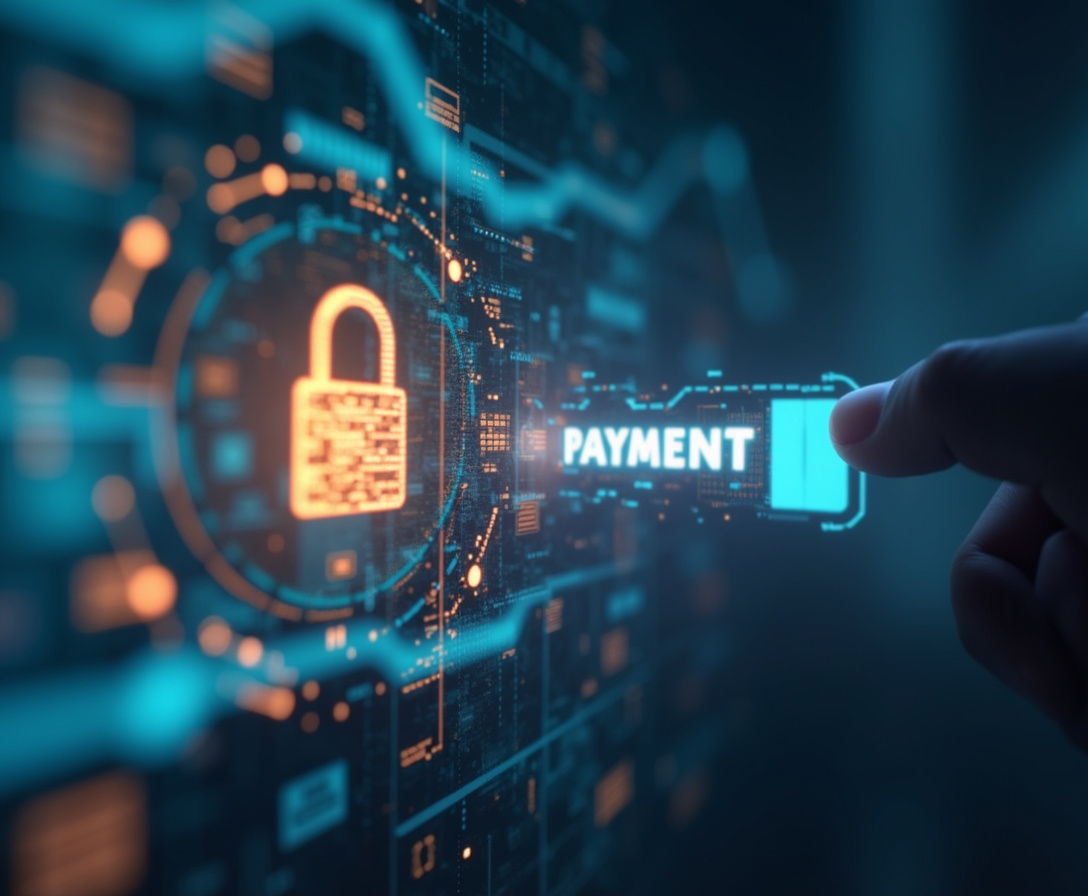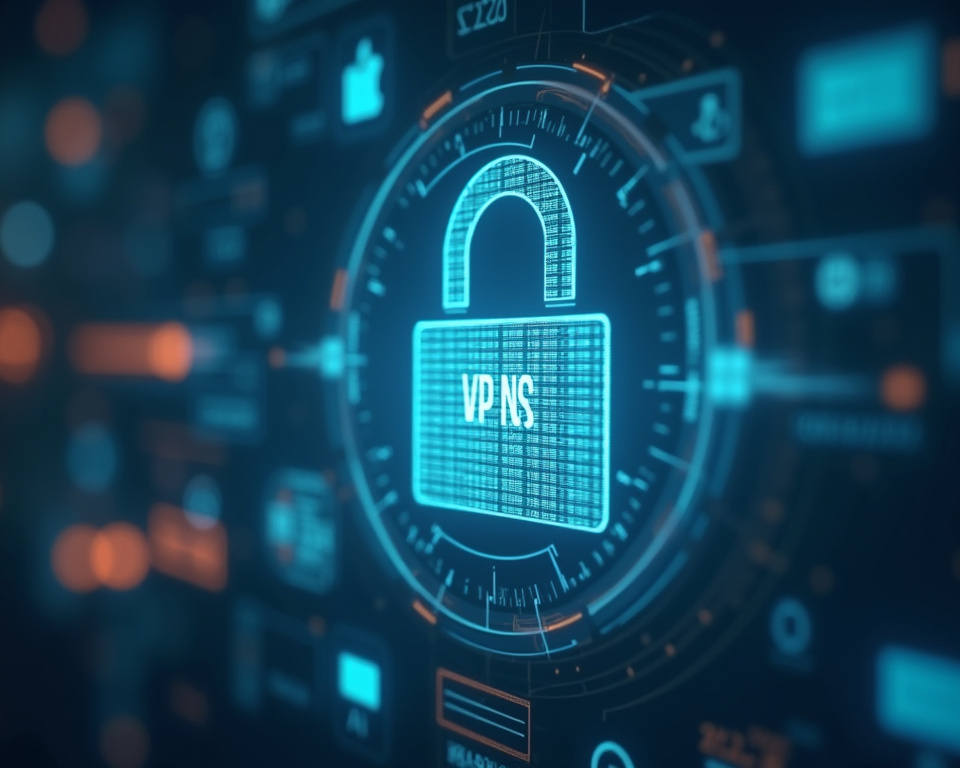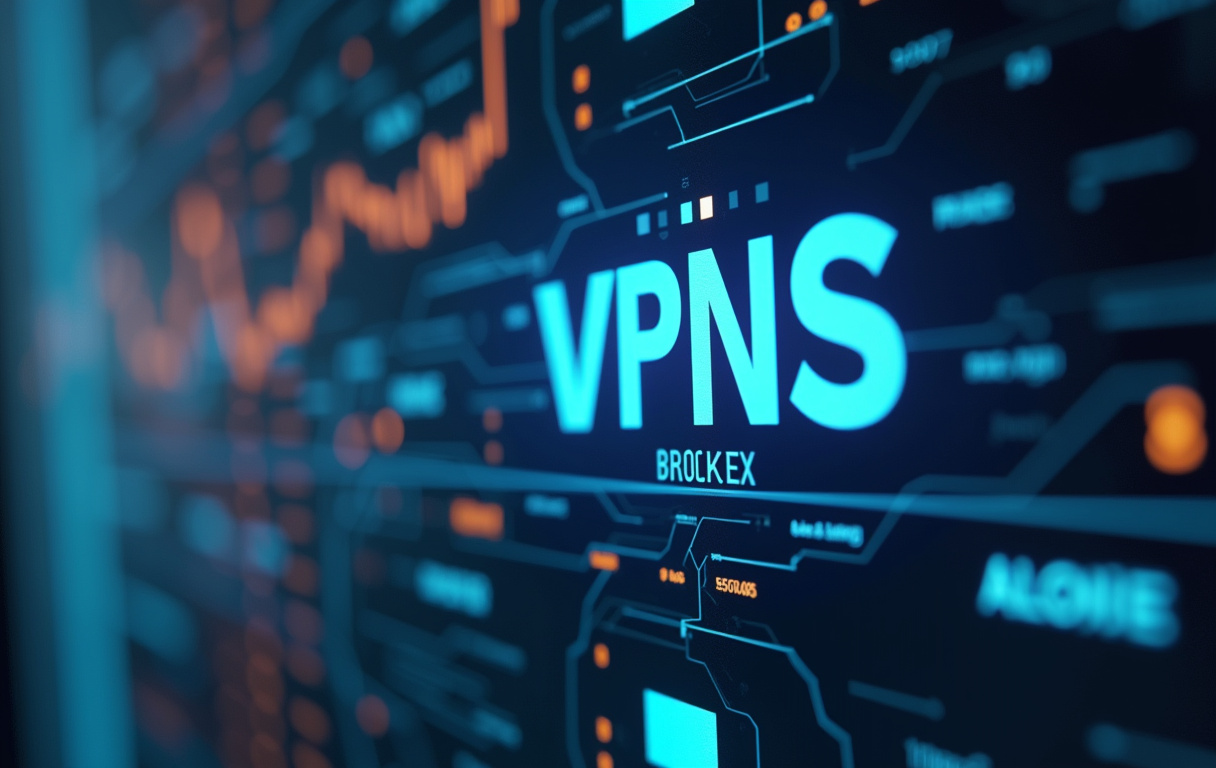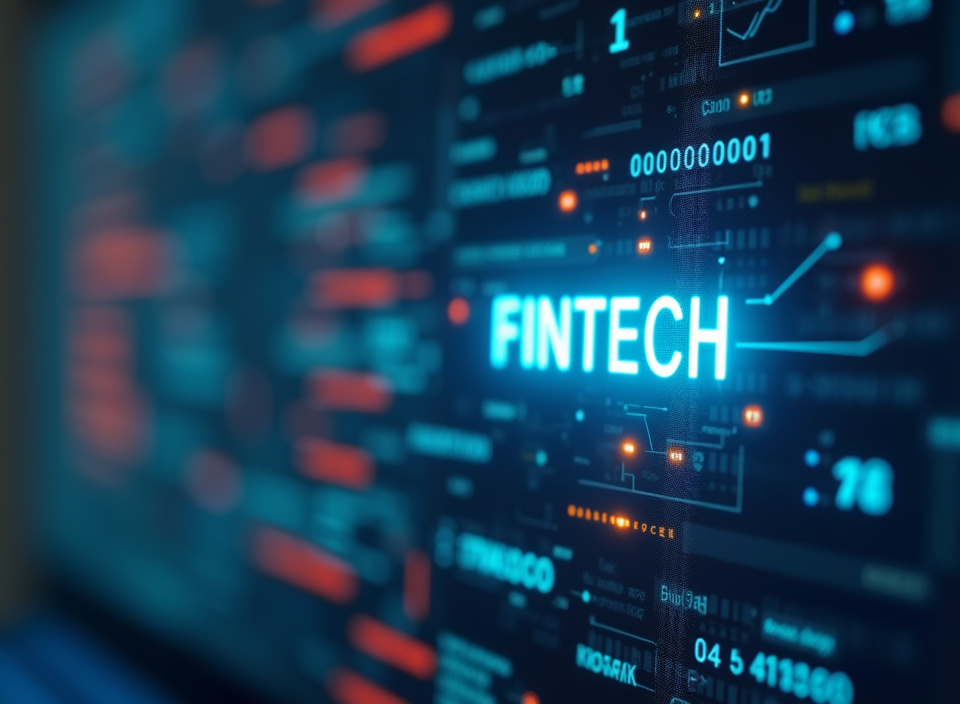VPNs for Mobile Payment Solutions: Securing Transaction Data

Table of Contents
The Critical Need for VPNs in Online Retail: Safeguarding Transactions and Customer Data
In today's digital landscape, mobile payment solutions have become an integral part of our daily lives, revolutionizing the way we conduct financial transactions. From the convenience of contactless payments at local stores to the ease of online purchases made via mobile applications, these technologies offer unparalleled speed and accessibility. However, this increased convenience comes with inherent security risks.
Mobile payments, by their very nature, rely on wireless networks and mobile devices, both of which are susceptible to a range of cyber threats. As a result, ensuring transaction security and protecting sensitive user information has become paramount. Virtual Private Networks (VPNs) offer a robust solution to mitigate these risks, providing a secure tunnel for data transmission and enhancing privacy for mobile payment users.
This article delves into the critical role of mobile payment VPNs in securing mobile payment solutions, exploring how they bolster transaction security, safeguard user information, and improve overall privacy. We will examine the threats facing mobile payment systems, the benefits of using VPNs in this context, and how these tools contribute to a safer and more secure financial transaction environment. The proliferation of mobile payment platforms has made them attractive targets for cybercriminals, who constantly seek vulnerabilities to exploit for financial gain.
Man-in-the-middle attacks, where malicious actors intercept data transmitted between a user's device and the payment processor, are a common and dangerous threat. These attacks can compromise sensitive information like credit card details, bank account numbers, personal identification data, and even login credentials. Imagine using a mobile payment app in a coffee shop, blissfully unaware that a hacker is lurking on the same Wi-Fi network, intercepting your payment data as it travels between your phone and the payment server.
Similarly, unsecured Wi-Fi networks, often found in public places like coffee shops, airports, and hotels, pose a significant risk to mobile payment users. These networks typically lack the encryption and security protocols necessary to protect against malicious activity. When users connect to these public networks without a mobile payment VPN, their data is vulnerable to eavesdropping.
Anyone with the right tools can monitor the network traffic and potentially steal sensitive information. Mobile payment apps themselves can also be susceptible to vulnerabilities, despite the best efforts of developers. Software bugs, coding flaws, and inadequate security measures can create openings for hackers to exploit.
Once inside, they can steal user data, tamper with transactions, or even take control of the app altogether, potentially using it to steal funds or access other sensitive information stored on the device. The consequences of these security breaches can be devastating, ranging from financial losses for individual users to reputational damage for mobile payment providers. A single compromised mobile payment app can erode consumer trust in the entire system, leading to a decline in usage and ultimately affecting the financial stability of the provider.
Beyond the immediate financial risks, there are also concerns about the misuse of personal information. Data breaches can expose sensitive user data to identity theft, fraud, and other forms of cybercrime. Therefore, implementing robust security measures is essential to protect both users and businesses in the mobile payment ecosystem, fostering trust and ensuring the continued success of these innovative technologies.
Mobile payment VPNs offer a multi-layered approach to security, directly addressing many of the vulnerabilities inherent in mobile payment systems. At their core, mobile payment VPNs create an encrypted tunnel between a user's device and a remote server. This encryption scrambles the data being transmitted, rendering it unreadable to anyone who might intercept it.
This is particularly important when using public Wi-Fi networks, where the lack of encryption makes data vulnerable to eavesdropping. By encrypting all data transmitted over the network, a mobile payment VPN effectively prevents hackers from accessing sensitive information like credit card details, bank account numbers, and personal identifying information. This encrypted tunnel acts as a shield, protecting your financial data from prying eyes.
In addition to encryption, a mobile payment VPN also masks a user's IP address, effectively hiding their online identity and enhancing privacy. This is significant because an IP address can be used to track a user's location and online activity. Websites, advertisers, and even malicious actors can use your IP address to build a profile of your browsing habits and potentially target you with personalized ads or even phishing scams.
By routing traffic through a remote server, mobile payment VPNs make it much more difficult for third parties to monitor user behavior or trace their online activities back to the user's actual location. This increased anonymity can provide an added layer of security, particularly for users who are concerned about their privacy and don't want their online activities to be tracked or monitored. This feature is especially beneficial when using mobile payment apps, as it prevents potential eavesdroppers from associating your transactions with your actual location or identity.
Protecting user information protection is a cornerstone of any trustworthy mobile payment system, and VPNs contribute significantly to this goal. Furthermore, mobile payment VPNs can help users bypass geo-restrictions and access mobile payment services that may not be available in their current location. Some countries impose restrictions on certain payment platforms or online services due to regulatory issues, political considerations, or licensing agreements.
By connecting to a VPN server in a different country, users can circumvent these restrictions and access the services they need. This is particularly useful for travelers or individuals living in countries with limited access to certain online resources. For example, a user might be able to access a specific financial app or service that's only available in their home country by connecting through a VPN server located there.
By connecting to a server in a location where the service is accessible, mobile payment VPNs effectively unlock restricted content and services, allowing users to conduct their financial transactions without limitations. This ability to bypass geo-restrictions enhances the user experience and ensures that individuals can access the services they need, regardless of their location. For mobile payment providers, integrating mobile payment VPN technology can significantly enhance the security and reliability of their platforms.
By offering a built-in VPN service within their app, they can provide users with an added layer of transaction security without requiring them to download and configure a separate VPN application. This can increase user adoption and improve overall customer satisfaction, as users appreciate the convenience and security provided by a seamlessly integrated VPN. Furthermore, VPNs can help mobile payment providers comply with data privacy regulations like GDPR (General Data Protection Regulation) and CCPA (California Consumer Privacy Act).
These regulations mandate that companies take steps to protect user data and ensure its privacy. By encrypting user data and masking IP addresses, a VPN helps ensure that sensitive information is protected from unauthorized access, complying with the stringent requirements of these regulations. This can reduce the risk of data breaches, legal liabilities, and regulatory fines, safeguarding the company's reputation and financial stability.
Implementing a robust VPN infrastructure can also improve the performance of mobile payment apps. By routing traffic through optimized servers, mobile payment VPNs can reduce latency, minimize connection delays, and improve overall connection speeds. This can result in a smoother and more responsive user experience, leading to increased user engagement and satisfaction.
Several VPN services have gained recognition for their strong security features, commitment to user information protection, and dedication to privacy. While we won't name specific brands, these reputable services typically employ advanced encryption protocols, such as AES-256 (Advanced Encryption Standard with a 256-bit key), to protect user data. AES-256 is considered one of the most secure encryption algorithms available today, providing a virtually unbreakable layer of security.
They also maintain strict no-logs policies, meaning that they do not track, collect, or store user activity, including browsing history, IP addresses, connection timestamps, and data transfer. This ensures that user data remains private and secure, with no record of your online activity being kept by the VPN provider. The absence of logs offers users peace of mind, knowing that their activities are not being monitored or stored, further enhancing their privacy.
When choosing a mobile payment VPN, it is important to carefully consider several crucial factors to ensure you select a service that meets your specific needs and provides the level of security and privacy that you desire. These factors include the encryption protocols implemented, the privacy policies in place (especially the no-logs policy), the range of server locations available globally, and the speed and reliability of the service. Users should also take the time to read reviews from reputable sources and compare different options before making a final decision.
Evaluating these factors comprehensively will lead you to a well-informed choice, securing your mobile payments effectively. A VPN for finance is particularly crucial for those who frequently use mobile payment apps on public Wi-Fi networks. As mentioned earlier, these networks are often unsecured, making them vulnerable to hacking, eavesdropping attempts, and man-in-the-middle attacks.
A mobile payment VPN encrypts all data transmitted over the network, protecting sensitive information from being intercepted by malicious actors lurking on the same network. This is especially important when making financial transactions, as credit card details, bank account numbers, login credentials, and other sensitive financial data could be compromised if transmitted over an unsecured network. The risk is magnified when dealing with financial transactions, as the potential damages from a data breach are usually significant.
Using a mobile payment VPN when conducting these transactions on public Wi-Fi enhances security and reduces the likelihood of falling victim to cybercrime. The digital payment industry is constantly under attack from malicious entities and therefore using all available tools to enhance financial security is paramount. The enhanced transaction security provided by a VPN is a critical component of mobile payment safety.
In addition to individual users, businesses that accept mobile payments can also benefit from using VPNs to protect their transaction data. By routing all mobile payment traffic through a VPN, businesses can ensure that sensitive customer data is protected from unauthorized access. This is especially important for small businesses that may not have the resources to implement robust security measures on their own.
A VPN can provide an affordable and effective way to enhance transaction security and protect customer data. Protecting your financial transactions is paramount and a VPN is an essential tool in this regard.
VPNs for Services: Enhancing Security and Privacy on Online Platforms
The mobile payment industry is continuously evolving, incorporating new technologies like biometrics, blockchain, and artificial intelligence. These advancements offer the potential to enhance transaction security, streamline processes, and improve the user experience. Biometric authentication, such as fingerprint scanning, facial recognition, and voice recognition, adds an extra layer of user information protection by requiring users to verify their identity using unique biological traits before making a transaction.
This makes it significantly more difficult for unauthorized individuals to access and use a user's mobile payment account. Blockchain technology, with its decentralized and immutable ledger, can provide a secure and transparent record of all transactions. This can help to prevent fraud and ensure that all transactions are accurately recorded and verified.
The transparency and security of blockchain can enhance trust among users and improve the overall integrity of the mobile payment system. Artificial intelligence (AI) can be used to detect and prevent fraud by analyzing transaction patterns, identifying suspicious activity, and flagging potentially fraudulent transactions for further review. AI can also be used to personalize the user experience, providing tailored recommendations and offers based on individual spending habits.
These technologies represent the future of mobile payments and are essential components in the continued growth and trust in digital financial solutions. However, as mobile payment solutions become more sophisticated and interconnected, it is crucial to ensure that they are protected by robust security measures. VPNs can play a key role in securing these new technologies, providing an encrypted tunnel for data transmission and masking user IP addresses.
This helps to prevent man-in-the-middle attacks, protects user data from being intercepted, and ensures that transactions are conducted securely. Mobile payment VPNs offer a vital layer of security for emerging mobile payment technologies. The ongoing evolution of mobile payment solutions necessitates commensurate advancements in security protocols.
The industry must proactively anticipate and address emerging threats by developing and implementing cutting-edge security measures. The security landscape is continuously changing, with new vulnerabilities and attack vectors emerging regularly. A mobile payment VPN is only one component of a comprehensive approach to security.
Other important measures include using strong passwords, keeping software up to date, being wary of phishing scams, and regularly monitoring financial accounts for suspicious activity. Education and awareness play a vital role in promoting safe mobile payment practices among users. Users need to be educated about the risks associated with using mobile payment apps and how to protect themselves from fraud and cybercrime.
Mobile payment providers should offer clear and concise security guidance to their users, including tips on how to create strong passwords, avoid phishing scams, and protect their devices from malware. Transparency and trust are essential for the success of mobile payment systems. Mobile payment providers should be transparent about their security practices and data privacy policies.
This will help to build trust among users and encourage them to adopt mobile payment solutions. By prioritizing security and user privacy, the mobile payment industry can continue to grow and innovate, providing consumers with a safe and convenient way to conduct financial transactions. The combined efforts of technology developers, VPN providers, and users are essential to create a safe and secure mobile payment ecosystem.
Ultimately user information protection is the key to long term success with financial instruments.
The Future of VPNs: Integration, AI, and Enhanced Security for Subscription Services
In conclusion, as the mobile payment landscape continues to expand and evolve, the importance of safeguarding transaction data and ensuring user information protection cannot be overstated. The convenience and accessibility offered by mobile payment solutions come with inherent security risks, making it essential to adopt robust measures to mitigate these threats. Mobile payment VPNs provide a crucial layer of defense, creating a secure channel for data transmission, masking IP addresses for enhanced privacy, and allowing users to bypass geographical restrictions.
By encrypting data and anonymizing user activity, VPNs effectively protect sensitive financial information from prying eyes and potential cyber threats. Choosing a reliable mobile payment VPN is not just a matter of enhancing security; it's an investment in peace of mind. A reputable VPN service, characterized by advanced encryption protocols, strict no-logs policies, and a wide network of servers, ensures that your financial transactions are conducted in a secure and private environment.
By selecting a trusted VPN provider, users can significantly reduce the risk of data breaches, fraud, and identity theft, fostering a safer and more secure mobile payment experience. The integration of VPN technology within mobile payment platforms represents a proactive approach to security, providing users with a seamless and convenient way to protect their financial data. By offering built-in VPN functionality, mobile payment providers can enhance user trust, increase adoption rates, and comply with stringent data privacy regulations, such as GDPR and CCPA.
This integration not only strengthens the security posture of the platform but also demonstrates a commitment to user safety and privacy, building long-term customer loyalty. As emerging technologies like biometrics, blockchain, and artificial intelligence continue to shape the future of mobile payments, VPNs will play an increasingly vital role in securing these innovations. By providing an encrypted and private channel for data transmission, VPNs help to prevent man-in-the-middle attacks, protect user data from unauthorized access, and ensure that transactions are conducted securely, fostering an environment of trust and confidence.
Transparency, education, and collaboration are essential for fostering a safe and secure mobile payment ecosystem. Mobile payment providers must be transparent about their security practices, data privacy policies, and the measures they take to protect user information. Educating users about the risks associated with mobile payments and providing guidance on how to protect themselves from fraud and cybercrime is crucial for promoting safe practices.
Collaboration between technology developers, VPN providers, and regulatory bodies is essential for developing and implementing effective security standards and protocols. Ultimately, securing mobile payment solutions requires a multifaceted approach that combines technological innovation, proactive security measures, and a commitment to user education and transparency. By embracing a holistic approach to security, the mobile payment industry can continue to thrive, providing consumers with a convenient, accessible, and secure way to conduct financial transactions, while maintaining the highest standards of privacy and user information protection.
The evolution of mobile payment VPNs is an ongoing process and as new challenges arise, more advanced solutions will be created to protect transaction security and privacy.
Stay Updated
Get the latest VPN news, tips, and exclusive deals to your inbox.




